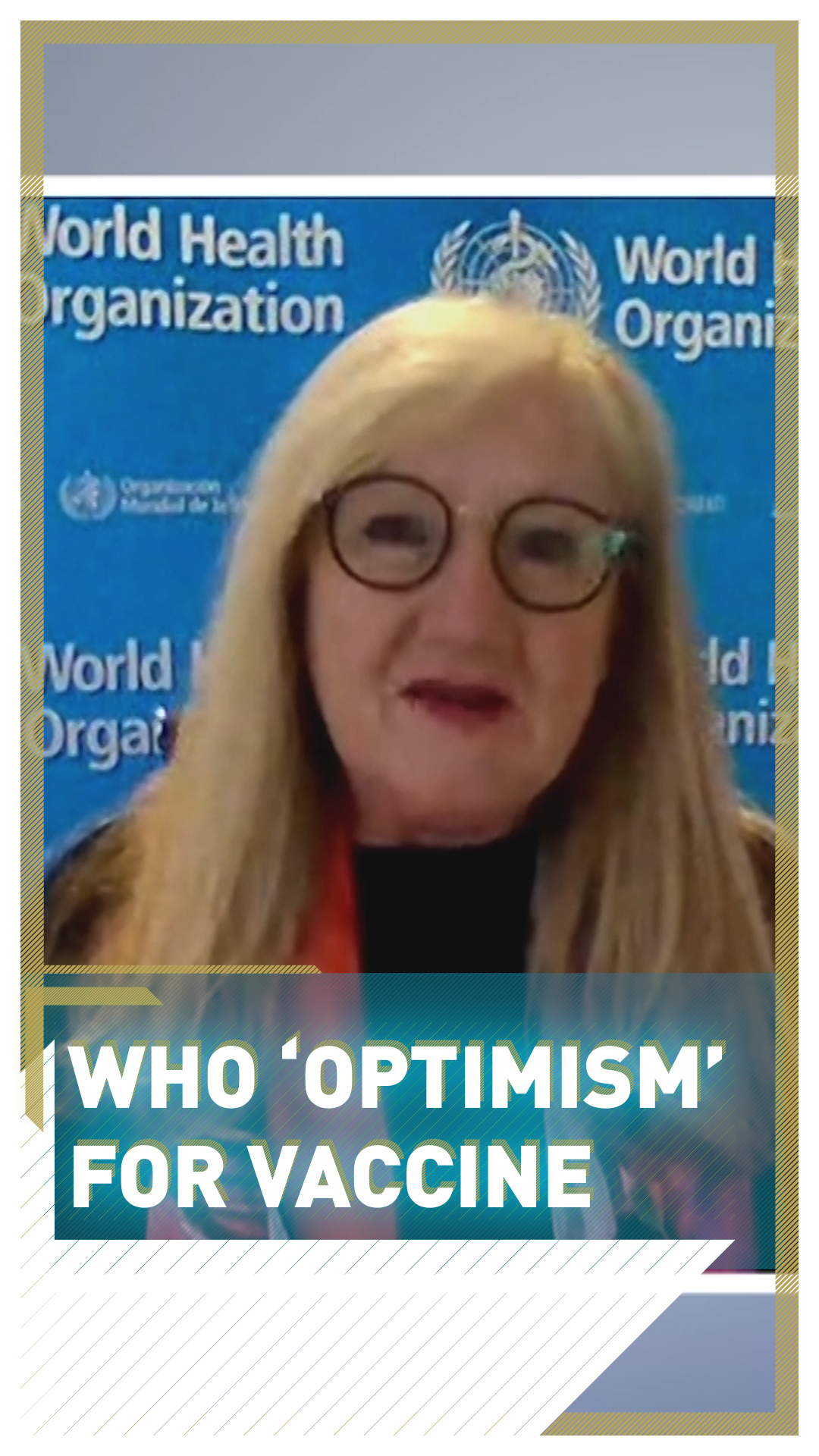02:21

As the World Health Organization holds its annual World Health Assembly - albeit a two-day online version of the usual ten-day affair - Margaret Harris says there is optimism both for the COVID-19 vaccine search, and the reaction of the world to the pandemic.
Harris told CGTN's The World Today there is "certainly reason for optimism" for a vaccine against the novel coronavirus, in part because "there's been no time in human history where we've had such capacity to achieve it. There's a lot of work to be done, but there are already some candidates being tested in the human population."
Adding a word of caution, however, the doctor from the WHO warned against putting all hopes in medical protection against the virus.
"The next steps are very much about how we learn to live with COVID-19. By learning to live, I mean how we learn to stop transmission in our communities and stay well and living, not having these large, large outbreaks. Now we know we can't just sit there and wait for a vaccine. We have to find ways to suppress transmission in all our societies."
Here too, there is reason to be encouraged.
"We do know how to do it. We've seen countries successfully do that, and that's through testing, tracking, tracing," Harris said.
In its meeting next week the WHO will elect a new board, as well as discussing its response to COVID-19 so far and planning its next steps.
"This meeting is being truncated to two days and being held entirely virtually. So everything will happen online."
"This is unprecedented. And it's certainly part of learning to live in the new world we're all learning to live in with COVID-19," Harris told CGTN Europe.
"I think this will actually concentrate the minds."
Although it will be shorter than usual, Harris said there will be much discussion, and input from China will be important to learning the lessons of the pandemic outbreak.
"China has got the greatest experience of this outbreak. It was first identified in China and there was a great deal of work and effort to shut it down. And that experience is being shared. And that experience needs to continue to be shared.
"And this is why a meeting like this is a great opportunity for everybody to say, 'well, this is what we did. This is how this happened', to learn the lessons, the positive lessons and the negative lessons. And this is exactly what work like ours is about is taking those lessons, learning from them, applying them so that a threat like this can be stopped."
Read more: Spain deaths below 100, UK invests $113m in vaccine centre, Italy's 'calculated risk': COVID-19 daily bulletin
Check out The Pandemic Playbook, CGTN Europe's major investigation into the lessons learned from COVID-19